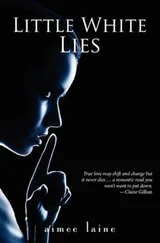Tiaki breaks out of the water. In his teeth, he has the sack. ‘He kuri pai!’ Paraiti calls to him, ‘Good dog. Hoki mai ki ahau. Bring the baby to me.’
Her usually clever fingers are so clumsy! They take so long to untie the knot. ‘Do your work quickly, fingers, quickly.’
And, oh, the baby is so still, with the tinge of blue on her skin. She already has the waxen sheen of death upon her. ‘Move quickly, hands, you have always healed, always saved lives. Give warmth to the child, massage the small heart and body to beat again and to bring the water up from her lungs. Quickly, hands, quickly. And now — ’
Paraiti holds the baby by the ankles and, praying again, gives the child a mighty slap on her tiny bottom.
The heart begins to pump, the lungs expel the water and the baby yells, spraying water out of her mouth. She tries to draw breath but starts to cough; that’s good, as she will get rid of all the water from her lungs. Very soon she is breathing and crying, and Paraiti continues to rub her down, increasing her body warmth. Tiaki noses in to see what she is doing. He whimpers with love and licks her.
‘Oh, pae kare,’ Paraiti says to herself, ‘Oh, thank God.’ She takes a moment to calm down. Then she addresses the baby, ‘I will call you Waiputa,’ she says. ‘Born of water.’ She sprinkles her head with water to bless her.
Waiputa is already nuzzling Paraiti’s breasts. ‘You’re not going to have any luck with those old dugs,’ Paraiti tells her. ‘I better find you a wet nurse.’ She looks across the river at the Maori settlement; there’s bound to be some younger woman there, breastfeeding her own child, who owes Paraiti a favour and won’t mind suckling another child.
As for the future? Paraiti smiles to herself. ‘What a menagerie we will make, Waiputa! A scar-faced woman, two old nags, a pig dog and you.’
Others had begun their lives with less.
Seven years later.
Time has been kind to Paraiti. Although her eyesight has dimmed a little, her memory is as sharp as ever, her medical skills intact, and her hands still do their blessed work. Tiaki has grown a bit greyer and is not as formidable a hunter in the forest as he used to be; instead of hunting a second pigeon he sometimes nips the first one on a wing so that it can’t fly too far and, when Paraiti releases it, sneakily, that is the same one he brings back. Both Ataahua and Kaihe are casting a keen eye on the pasture across the road where they can be retired to live out the rest of their years. Time for some other young colt and mule to take over.
This morning Paraiti woke as usual at dawn, said her karakia, performed her ablutions, packed the saddlebags and set off down the road. She still makes her annual haerenga and, in the year 1936, she is on her way to a hui at Te Mana o Turanga, Whakato Marae, Manutuke, the birthplace of the prophet Te Kooti. Oh, how she loves that meeting house! So full of carvings and stories of the people. Whenever she visits, it is like the past comes to life before her.
And she is so looking forward to the hui, too. There are two major thanksgiving festivals in the annual Ringatu calendar: one is held on 1 June, coinciding with the beginning of the Maori New Year, when the mara tapu is planted to commemorate God’s promise of salvation to all humankind; the other is held on 1 November, the celebration of the Passover, established by the prophet Te Kooti according to Exodus 40:2: ‘Hei tera tuatahi o te marama tuatahi koe, whakaara ai te tapenakara o te teneti o te whakaminenga.’
The tapu is lifted from the sacred garden and what has been planted on 1 June is harvested — symbolic of the resurrection of Christ. In this ceremony of ‘The Lifting of the First Fruits’, the people make a commitment for the next six months to walk in righteousness.
Paraiti usually travels by the side of the Pakeha roads now. Many of the great Maori trails are fenced off, and the last time she travelled on Rua’s Track, she had trouble hanging on when she was negotiating the steepest part. But she still grumbles about the ways that civilisation is advancing through the world, and she is always pointing out more of its marks.
She comes to the fork of the road where roadmen have been constructing a combined road and rail bridge. She’s never seen one quite like it. The road has been made of a black and sticky material. Tiaki sniffs at it and growls. Ataahua and Kaihe stand patiently waiting for the order to move across.
‘It might be like the Red Sea,’ Paraiti mutters. ‘We could be halfway and next minute, aue, the waves will come over us.’
‘No it won’t, Nan,’ a young voice says. ‘It’s called tarseal. Come on, there’s no traffic. Let’s cross now.’
Riding Kaihe is a pretty young girl, dark, with auburn hair. Paraiti has an assistant now, a whangai daughter, Waiputa. Waiputa now fills her waning years. She is someone to love; the new seed for the future, blossoming from Paraiti’s old life. In turn, Waiputa is someone who loves her matua. They make a good team, the scarred one and the unscarred one.
‘Tarseal, eh?’ Paraiti answers. ‘You’re learning lots of big words at that school of yours.’
She pulls Kaihe across the black river. Aue, motorised traffic is faster than a horse and an old mule. It can come out of nowhere and is onto you before you know it. Roaring across the bridge like a ngarara comes a huge sheep truck and trailer.
‘Quickly, Nan,’ Waiputa says. ‘We have to get to the other side of the road.’
But Paraiti knows how fast she can go. Quick? She is already at quick. There’s nothing to do except face the ngarara. ‘E tu,’ she says to Ataahua and Kaihe. Together, they turn to the oncoming monster. Paraiti reaches for her rifle.
The truck driver signals to her, ‘Get off the road,’ and then slams on the brakes. The truck squeals to a halt, its trailer rattling, wheezing, collapsing before the old woman and her whangai daughter. The driver swears and starts to open the door. But when he sees the old, greying dog snarling and the little red-haired girl baring her teeth, he shuts it again, quick and lively. ‘Stupid old woman,’ he yells at Paraiti as he drives his truck around them.
Paraiti gets to the other side of the road. Waiputa looks at her and wags a finger. ‘Bad girl, Nan. We could have been killed.’
‘I know,’ Paraiti answers. ‘And I realise it was just a truck. But you know, in the old days, I would have shot it.’
Paraiti peers at the sun and begins to laugh and laugh. Then, looking at the road ahead she pulls down her sunhat and says to Waiputa, Tiaki, Ataahua and Kaihe:
‘Looks like we’re just going to have to last forever.’












